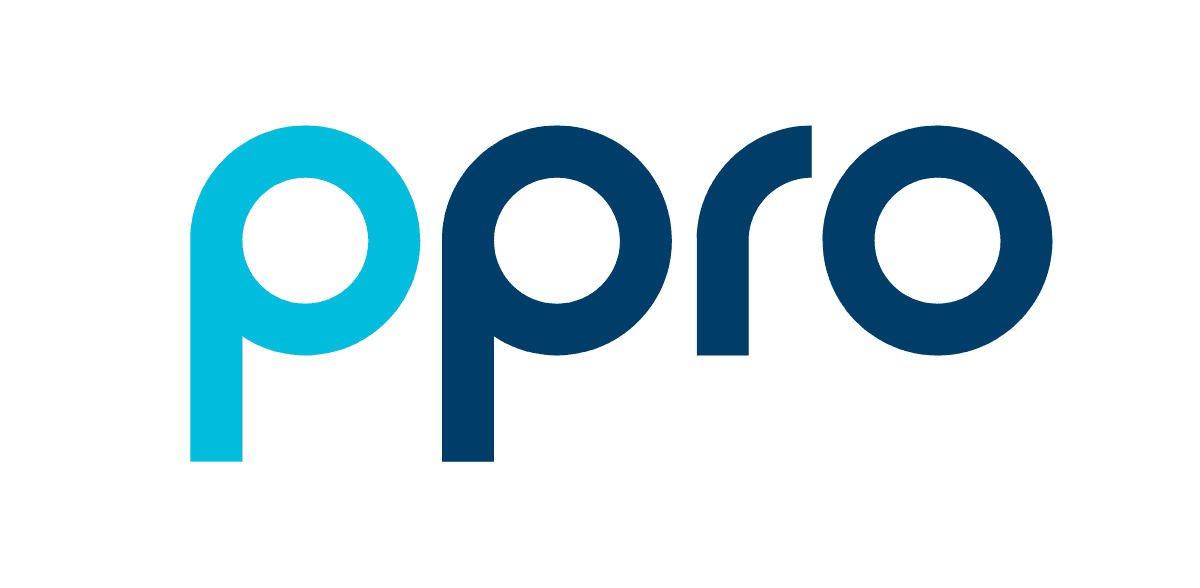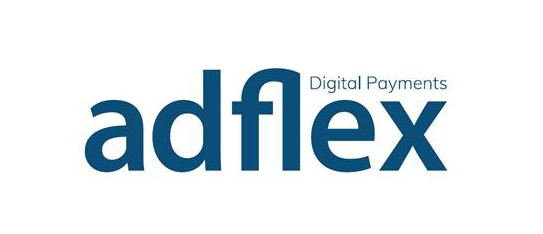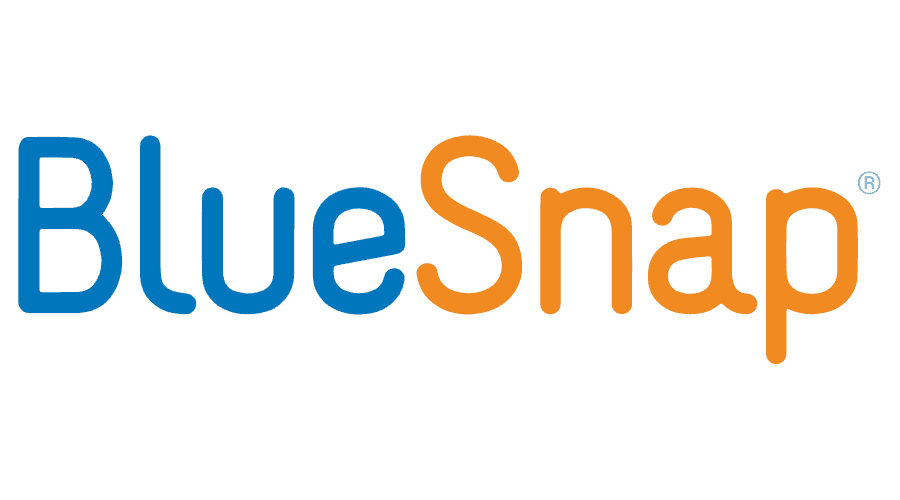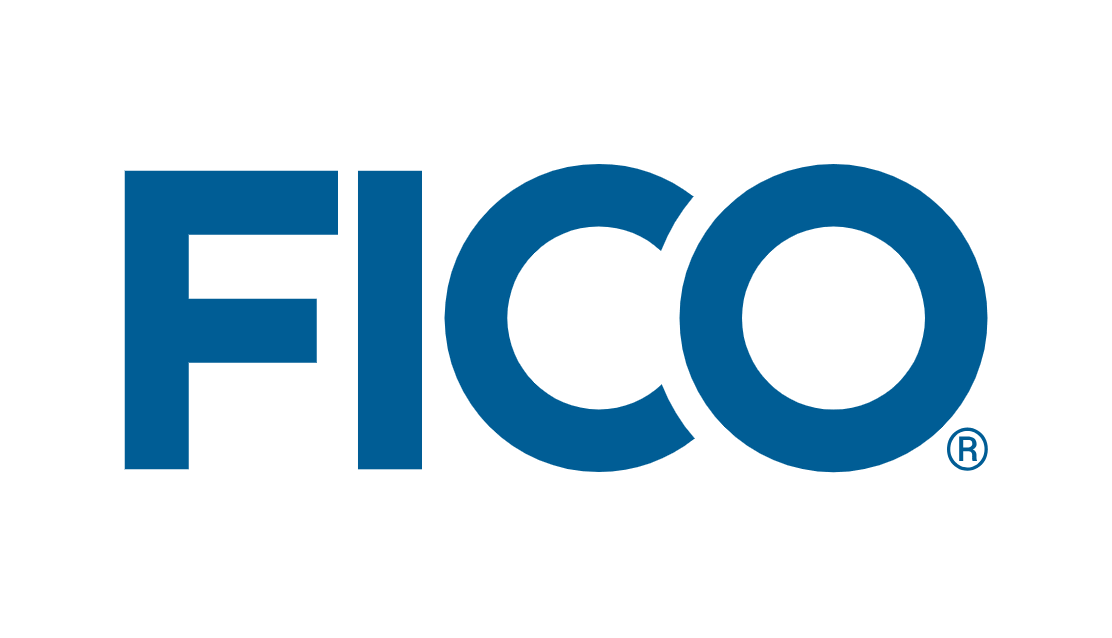Published
- 08:00 am

- Ranked #4 by CryptoCompare based upon asset and market quality, data, security, KYC, regulations, and the team.
- CrossTower brings its global expertise, technology, regulatory knowledge, and security standards to India.
- Users can trade more than 40 cryptocurrencies (tokens).
CrossTower, one of the world’s fastest and leading trading platforms and digital asset investment firms, today announced the launch of its crypto trading platform in India. The platform was methodically built on a robust, scalable, and resilient infrastructure with best-in-class safeguards, services, and capabilities. CrossTower offer the most competitive fees to the Indian crypto community.
CrossTower is ranked fourth out of 152 global exchanges by CryptoCompare - a central and leading authority for global cryptocurrency data. The ranking was based upon asset and market quality, data, security, KYC, regulations, and the team. Besides offering competitive pricing for its users, the company also uses sophisticated compliance infrastructure and top security measures to protect customers. As a part of its launch, CrossTower is offering its first 1,000 Indian customers an opportunity to earn extra Bitcoin upto INR 500 on their first trade on the exchange.
The company’s launch in India is at a pivotal time for the rapidly growing Indian market. The Indian cryptocurrency market grew from USD 923 million in April 2020 to a staggering USD 6.6 billion in May 2021, which is an average of over 50 per cent monthly growth. With over 1.5 crore Indians invested in crypto already, the Indian market is positioned to significantly grow. Among 154 nations, India ranks 11th in cryptocurrency adoption, according to a report by Chainalysis, a well-respected blockchain data platform.
For India, CrossTower has built a business that permits everyone, from young adults to business tycoons, making investing in cryptocurrency easiest and safest. Any individual in any village, town or city in the country can start cryptocurrency trading with the trusted CrossTower platform using Indian rupees and access over 40 cryptocurrencies (tokens).
CrossTower was co-founded in 2019 by Kapil Rathi, Chief Executive Officer and Kristin Boggiano, President, to bring digital asset trading mainstream. Both bring over 20 years of experience in managing traditional exchanges and financial services businesses in the US. CrossTower operates fully regulated crypto exchanges in the US and Bermuda, servicing 81 countries. Rathi has built exchanges over the past 20 years, including at the New York Stock Exchange, BATS, International Securities Exchange (ISE) and Chicago Board Options Exchange (CBOE).
Kapil Rathi, co-founder and Chief Executive Officer said, “In the last couple of years, India has seen a revolution in crypto-investing. The new generation of investors in India has welcomed cryptocurrencies as a tool for financial freedom. With advancements in technology, crypto markets have proven a key driver in the democratisation of wealth. Our team’s unique combination of expertise will allow us to make investments in cryptocurrencies simple and accessible for any individual. CrossTower is also thrilled to participate in policy-making that will drive India to be a premier leader in the cryptocurrency industry on a global level.”
Vikas Ahuja, Chief Executive Officer of CrossTower India said, “With CrossTower, India will be one of the leading nations in the digitisation of global capital markets. The Cryptocurrency and Regulation of Official Digital Currency Bill, 2021, is currently being reviewed and is slated for the next session of the Indian parliament. With India being the world’s largest democracy, this bill will play an important role in shaping the future of cryptocurrencies for the Indian community. CrossTower is excited to bring global education, a futuristic understanding of money, as well as the thrill of trading cryptocurrencies to India.”
CrossTower is a global thought-leader and a participant of the Internet and Mobile Association of India (IAMAI), Blockchain and Crypto Assets Council (BACC), Global Digital Asset and Currency Association (Global-DCA) and the Digital Asset Regulatory Legal Alliance (DARLA). Through these organisations, CrossTower facilitates policy that will enhance the development and innovation of finance while emphasising the protection and safety of customers’ assets.
Related News
- 02:00 am

The service is a cornerstone to drive out structural oversupply in the Energy industry as it shifts the focus to the cargo instead of the assets that deliver it
FlexDELIVERY™ launches for first time in Africa, bringing a disruptive technology-led innovation that focuses on its customer’s needs, being cargo delivery, by
- Reducing Delivery times
- Enhancing Visibility and
- Driving supply chain predictability
- The service is a cornerstone to drive out structural oversupply in the Energy industry as it shifts the focus to the cargo instead of the assets that deliver it.
- P&O Maritime Logistics (www.POMaritime.com) partners with Nigerian-owned IO Materials Services (IOMS) to provide offshore delivery services from Gate-In to offshore delivery by engaging with the local eco-system.
- With the reduction of delivery time, increased supply chain visibility and predictability the energy industry also benefits from lower fuel consumption and carbon emissions making the oil and gas industry more environmentally friendly.
Today, P&O Maritime Logistics and Nigerian firm IO Materials Services (IOMS) jointly announce the launch of the new ‘FlexDELIVERY™’ model to provide integrated last-mile delivery services to the offshore energy industry in Nigeria.
FlexDELIVERY™ disrupts the traditional model of high shore base startup costs, rentals and vessel time-chartered contracts by focusing on the service that is required by the energy industry – cargo delivery. FlexDELIVERY™ has marked new grounds with a freight rate model targeted at the Offshore Energy Industry which traditionally worked on an asset and facility model.
This service proves to reduce delivery times, enhance visibility and predictability which will re-invent procurement strategies, inventory management tactics and the energy supply chain as a whole. This industry first model, be it exploration, drilling, production or maintenance will drive down operating costs and capital expenditures for the energy producers by driving out structural oversupply in the energy industry which will be a welcoming shift.
By injecting a tech-led solution, FlexDELIVERY™ enhances visibility throughout the last mile delivery which has been a bottleneck for some time. Harnessing BigData and AI technology, it provides predictability with a real time view on cargo movement and delivery dates all controlled through an online booking platform. The platform reinforces the integrity of the energy supply chain, providing energy producers with peace of mind to focus on their core business being extraction of energy.
The new offering, which began service on the 4th of September 2021, is an expansion of P&O Maritime Logistics’ disruptive innovation ‘Supply on Demand’ to integrate shore base and quayside operations to deliver a comprehensive logistics solution, strategically named FlexDELIVERY™ for the Nigerian market.
Nigeria being a microcosm of the energy sector, P&O Maritime Logistics and IO Materials Services saw a huge potential in the country to offer a disruptive and tech-driven offshore supply solution like FlexDELIVERY™️ due to the current expensive energy logistics supply chain.
Currently, most platforms offshore Nigeria rely on antiquated manual paper-based operations, that duplicate manpower, facilities and equipment, and cost approximately 2-4 times more than the global average for running an offshore supply operation.
On average, FlexDELIVERY™ reduces costs by 20-30% per good transported, has 20-30% lower fuel consumption and 40 -50% less distance travelled compared to traditional time-charter supply contracts.
Martin Helweg, CEO at P&O Maritime Logistics said: “Following the success of our Supply on Demand service, we saw a gap in the Nigerian market, spotting that the country’s offshore supply market was ripe for the revolutionary FlexDELIVERY™ system that brings efficiency and value to our customers.”
“With the continued expansion of our innovative service in partnership with IOMS, we’re bringing a step change to the offshore supply industry and aligning our service to be in sync with our customers’ needs: reduced delivery times, visibility and predictability.”
Through its state-of-the-art system, powered by P&O Maritime Logistics innovative technology, FlexDELIVERY™ gives customers clear visibility of cargo movement and sailing schedules in a boon to forward planning.
Christian Arndt, VP Logistics at P&O Maritime Logistics said: “By launching in Nigeria, P&O Maritime Logistics is showing the industry that smart solutions can generate efficiency gain and lower production costs. Customers will see reduced equipment, inventory carrying, and supply chain costs, while boosting productivity. With ‘FlexDELIVERY™’ offshore operators will gain back time to focus on core business activities. We are looking forward to presenting our FlexDELIVERY™ innovation to existing and future clients.”
Shore bases will be operated by IOMS from its locations, providing wide coverage for oilfields across the Nigerian offshore energy industry.
Matteo Volpi, CEO at IOMS said: “We are thrilled to be P&O Maritime Logistics’ partner in launching FlexDELIVERY™ into the Nigerian market. FlexDELIVERY™ will further reduce supply chain costs in combination with IOMS’ Digital FlexBASE™ offering.
With our deep local industry knowledge, and our network of locations and logistics partners across Nigeria, IOMS is working to further reduce supply chain costs for industrial clients, powered by P&O Maritime and our innovative supply chain solutions.”
Related News
- 04:00 am

Popular payment methods join other Indonesian market-leaders on PPRO’s platform including DOKU and OVO
PPRO, the leading global provider of local payments infrastructure for payment service providers, banks, and enterprises with payment platforms, has today announced their integration of two of the most popular payment methods in Indonesia, Jenius Pay and LinkAja.
These latest additions to PPRO’s platform will enable international payment companies and their merchants to cater to Indonesia's preferred payment methods, a proven way to increase sales in any local market. This integration was released in cooperation with PPRO’s partner DOKU, a leading payment technology company that enables more Indonesians to pay with their trusted payment methods when shopping online and onsite.
LinkAja is Indonesia's national payment system platform used by more than 75 million consumers to assist cashless financial transactions. Jenius from Bank BTPN provides ease of transaction with Jenius Pay as an online transaction option using $Cashtag (a unique identity to replace account numbers for Jenius users). Jenius, a life finance solutions for digital savvy, continues to grow and gets positive feedback which currently has more than 3.3 million users.
Jenius Pay and LinkAja join Indonesia’s other preferred payment methods, DOKU and OVO, on PPRO’s platform in a move that deepens PPRO’s commitment and expands their footprint in a market increasingly recognised as a hotspot for digital payments in APAC. The digital financial services market in Indonesia is expected to be worth US$ 8.6 billion by 2025.
Kelvin Phua, Global Head of Payment Networks at PPRO comments:
“PPRO has only been active in Indonesia since 2020. Since then, we’ve added the region’s biggest payment players to our platform and been able to increase reach for companies who want to cater to the preferences of one of the world’s fastest growing markets – without the added financial and operational burdens of entering new territories.”
“As strategic partners to many of the world’s biggest and up-and-coming payment companies, we’re constantly adding payment methods and services to our infrastructure. Doing so vastly reduces the cost and complexity that merchants face when helping consumers shop with their preferred payment methods.”
Irwan S. Tisnabudi, Digital Banking Head Bank BTPN comments:
“Jenius believes that collaboration from various parties is needed to create a digital economy ecosystem. In line with the spirit of co-creation and collaboration that Jenius has carried from the start, we are excited to collaborate with PPRO in providing more complete and relevant financial services. This integration with PPRO widens our reach into the global merchant ecosystem and strengthens our endeavours to deliver life finance built around the consumer.”
Haryati Lawidjaja as CEO LinkAja said, “Our integration with PPRO allows us to continue our mission to accelerate financial inclusion in Indonesia, focusing on the essential needs of the lower middle class as well as Micro, Small and Medium Enterprises.”
Jenius Pay and LinkAja are the latest local payment methods to join PPRO’s platform including Alipay, WeChat Pay, GrabPay, Bancontact, iDEAL, BLIK, and Boleto Bancário. PPRO announced earlier this year that it had raised US$180 million, taking the firm’s total value to over US$1 billion.
Related News
- 06:00 am

According to the data presented by the team of Atlas VPN, 50% of businesses worldwide have experienced recurring attacks from the same hackers, with companies in the United Kingdom suffering the most.
What is more, out of the businesses that experienced repeated attacks, a whopping 61% of them did not remediate the breaches, leaving the companies vulnerable to any further attacks.
Companies in the UK have had the most cybersecurity incidents — 55%, followed by organizations in North America (50%), Europe (49%), and Latin America (48%).
The top five security threats affecting organizations are cloud vulnerabilities (65%), denial of service attacks (60%), phishing and social engineering attacks (52%), malicious insider threats (45%), as well as DNS-based attacks (44%).
Low-value security alerts and shortage of staff are the main security challenges for organizations
As cyber attacks are growing more sophisticated, breaches are becoming everyday events rather than worst-case scenarios. But what are the challenges that organizations face when dealing with cyber incidents?
The number one challenge of survey respondents is that their systems generate too many low-value security alerts. When security analytics systems cannot effectively prioritize alerts, it wastes the team's time by asking it to clear low-value alerts while highly important alerts linger at the bottom of the queue. Therefore, 69% of companies see it as a significant challenge.
Shortage of staff is another prevalent issue. In total, 60% of companies have a shortage of in-house expertise that could utilize security technologies, 56% say they lack the staff to pick up the workload, while 53% lack employees or skills to deliver lasting data-driven outcomes.
Ruth Cizynski, the cybersecurity researcher and writer at Atlas VPN, shares her thoughts on the situation:
“As long as organizations do not address existing vulnerabilities and security issues, they risk being hit by cybercriminals again. Organizations should prioritize internal processes that they can control over external security risks that they cannot. ”
Related News
- 09:00 am

API integration with Adflex’s B2B digital payment platform strengthens merchants’ defences against fraud
B2B payments specialist Adflex today announces a partnership with Signifyd, the market leader in commerce protection, to enhance security checks and reduce fraud for its merchant customers via machine learning, AI, and velocity checks.
Adflex processes over seven million supply chain transactions a year for more than 4,000 businesses, including some of the world’s largest enterprises. It uses EMV® 3-D Secure to offer seamless authentication to its ecommerce customers and is now bringing additional fraud protection to its user base by integrating Signifyd’s machine-learning technology into its B2B payment offering via API.
Signifyd’s platform will enable Adflex to make use of machine learning and big data to automate online order flows and separate fraudulent and legitimate orders in real time, giving Adflex’s merchant customers complete trust that their transactions are authentic and secure.
The integration will also automatically perform velocity checks to instantly assess and identify irregular payment patterns that could indicate fraud. These checks are designed to monitor the pace at which buyers submit transactions, helping to identify and intercept fraudsters that seek to quickly max out stolen card details.
On average, users of Signifyd see an eight percent increase in accepted orders. The company uses big data and machine learning to provide a 100 percent financial guarantee against fraud and chargebacks on approved orders, optimising revenue for retailers. Signifyd customers include Samsung, Mango, eBay, and Lacoste to name a few.
“B2B payments are becoming more digitised as buyers and sellers seek to simplify and accelerate their transaction flows, and establish greater control over their payments,” said Pat Bermingham, CEO, Adflex. “By partnering with Signifyd, Adflex is able to provide instant, automated protection to our customers, enhancing our existing anti-fraud offer through cutting-edge machine learning technology. Our modernised suite of digital payment services, each wrapped in a RESTful API, ensures our acquirer and merchant clients can quickly and easily benefit from these value-added services.”
The Adflex Hosted Payment Page enables business clients to seamlessly integrate card payments within their website, improving checkout conversion and boosting ecommerce revenue. Its cloud-based APIs enable fast, web-based integration of a wide variety of payment services, from simple consumer debit and credit to commercial credit and level 3 purchasing cards, supporting SCA, Click to Pay, and multiple shopping cart plugins.
Ed Whitehead, MD EMEA, Signifyd, concluded: “As a leader in the fraud management space we are always looking for ways to enhance our offering to clients so we are pleased to announce our partnership with Adflex. As a specialist in business payments, Adflex understands the complexities and challenges of the digital landscape, sharing Signifyd’s desire to simplify the process for buyers and sellers while keeping them secure online.”
Related News
- 01:00 am

A BlueSnap survey of 100 senior business executives showed that 41% were experiencing international payment authorisation rates of less than 70%
The key study findings:
68 percent fail to take advantage of local acquiring – resulting in lower sales due to sub-par authorisation rates and increased costs due to high cross-border fees
Almost half estimate that they’ve lost up to 10 percent of their revenue by not offering the right payment options
31 percent are mired in technical debt trying to manage 4 or more payment providers
BlueSnap, a payment company helping businesses accept payments in over 200 geographies, has released its findings on the key challenges businesses face when it comes to cross-border payments.
The survey highlights the drastic losses in sales and revenue and hefty expenses companies can incur if they do not optimize how they process payments on goods and services sold internationally.
Conducted in partnership with Pulse, the new study found that 68 percent of companies that sell to international customers are processing payments in the country or region where their business is headquartered rather than where they have a local entity and their customer is located (cross border). This can result in dramatically lower payment authorisations rates. According to the study, 41 percent of companies reported payment authorisation rates of 70 percent or less, meaning businesses could be losing more than 30 percent of their international sales.
Nikhita Hyett, Managing Director, Europe at BlueSnap said: “Over the last year, we have seen a lot of businesses switch up their business models with a renewed focus on online sales as physical stores shut down due to lockdown. So as their customer base opens up, due to cross-border trade, businesses must ensure they have the right payment solutions in place to maximise sales and reduce costs. At BlueSnap, we are proud to be helping many businesses avoid this 30 percent loss in international sales, through our suite of cross-border products and services.”
Without the right payments partner, processing payments “cross-border” can result in significant cross-border and foreign exchange fees applied to both businesses and potentially their customers for each transaction. Cross-border fees can add more than 1 percent to the payment processing cost for each transaction.
With the Bank of England reporting that cross-border payment volumes will reach $250 trillion by 2027, the importance of updating and optimizing wholesale and retail payments for an increasingly globalized eCommerce market has never been more apparent.
Less visible is the tremendous technical debt businesses are saddled with – nearly a third of companies are managing four or more payment providers to facilitate international sales. Business leaders report challenges with keeping all the payment integrations up to date, managing multiple vendor relationships, and inconsistency of capabilities across payment integrations. In fact, almost half of businesses estimate that they’ve lost up to 10 percent of revenue by not offering the right payment options.
Related News
- 04:00 am

FICO research shows Gen Z group is least likely to open an account in-person
Highlights
- UK consumers today are 31 percent more likely to open an account digitally than a year ago, FICO survey finds
- Just 13 percent of Generation Z respondents would use a bank’s website to open a new account
- Generation Z shows greater preference for in-person account opening, compared with older age groups
A new study in the UK by analytics software firm FICO shows that UK consumers today are 31 percent more likely to open an account digitally than a year ago. However, the surprising outliers in the rush to digital-first account opening are Generation Z (Gen Z). Financial education is key as it appears that digital savviness is not enough to counter the need for in-person help and advice when selecting banking providers.
More information: https://www.fico.com/en/latest-thinking/ebook/united-kingdom-consumer-survey-2021-identity-proofing-and-digital-banking
However, while some members of Generation Z (Gen Z) are eager to use a bank’s app to create an account, most prefer to open accounts offline. When asked about their preferences for opening a current account, just 13 percent of Gen Z said they would use a bank’s website, compared to 43 percent of respondents across all age groups. Gen Z showed a greater appetite than other age cohorts for opening an account in a branch, over the telephone, and through the post.
“While it may come as surprise to many to see Gen Z more interested in face-to-face account opening than older age groups, this is not so unexpected when you consider that they have had little experience in using financial services and help and advice that is personal to them is harder to access in digital channels,” said Cox. “Banks that can find a compelling way to offer highly personalized, financial advice to younger people within digital channels could gain a competitive advantage.”
“There’s a real myth that young people are exclusively banking online, that they all embrace this new wave of digital-only banking, and they know how to make the most of fintech,” said Iona Bain, British founder of the award-winning Young Money Blog and a leading commentator, writer and authority on millennial finances. “It’s only a small minority of young people who are totally clued up about digital finance, and a lot of this is based on whether or not they are talking about money at a young age.”
When younger people do want to use digital means to open accounts, they are more likely to want to use mobile apps rather than websites. 35 percent of this age group selected this option compared to just 20 percent across the other age groups, however this was more than offset by the large number of older people (43 percent) who were keen to use providers’ websites to open accounts.
“Gen Z is more familiar with the internet than the older age groups involved in this study were at the same age. They live their lives online,” Bain added. “This, however, does not automatically mean they are more comfortable with using it for their financial activity. Their knowledge means they are also more likely to be aware of certain scams and the risks facing their personal data. This can make them hesitant to create a new account online.”
This online survey was conducted in January 2021 by an independent research company adhering to research industry standards. 1,000 UK adults were surveyed, along with 13,000 consumers in the USA, Canada, South Africa, Indonesia, Vietnam, Philippines, Malaysia, Thailand, Australia, New Zealand, Brazil, Colombia and Mexico
Related News
- 03:00 am

Yugabyte, the leader in open source distributed SQL databases has announced a new EMEA customer win, with global digital money transfer service leader WorldRemit.
The London-based payments firm has agreed to take a software subscription for Yugabyte’s high-performance distributed SQL database, in addition to full global 24x7 support. Yugabyte will now help this fast-growing fintech to improve service resilience via transparent two-way failover, boost internal regulatory compliance procedures and reduce overall operational costs.
Mark Watson, Chief Technology Officer, WorldRemit said: “Technology resilience is fast becoming a regulatory and business obligation in the fast-growth fintech industry, and we see YugabyteDB as a key component in the way we address that challenge."
The context for this business need and the Yugabyte selection is scale. WorldRemit serves 5.7 million customers using 70 different currencies across 130 countries worldwide and offers multiple zero-fee options for sending transfers overseas, including bank deposit, mobile money and cash pickup. Its application has already won more than 125,000 five star reviews and the company operates in more than 5,000 money transfer corridors worldwide and employs 1,200 people globally.
Given this, WorldRemit selected Yugabyte to improve resilience and scalability, and accelerate the firm’s on-going digital transformation strategy from monolithic applications to a multi-cloud microservices architecture, supported by extensive use of the Postgres open source database.
Watson added: “We have to carefully tune standard Postgres databases to get the performance YugabyteDB gives us out of the box. That’s the icing on the cake for us. It’s simply Postgres for the cloud-native world.”
Martin Gaffney, Vice President, EMEA, Yugabyte, commented: “It’s a huge honour to have been chosen by such an important and ambitious financial services leader as WorldRemit. We are excited to support the next phase of its digital transformation journey, and appreciate that this decision was confirmed after extensive real-world stress testing of our tech capabilities, to prove only our approach to cloud transaction support can truly deliver.”
This announcement, to support the next stage of the fintech’s expansion, follows the opening of Yugabyte’s business operations in the region, and the appointment of Martin Gaffney as Vice President, EMEA.
Yugabyte officially established its presence in EMEA in May with the opening of its European HQ in Surrey, and the firm is already accelerating its business and team growth across the region.
Related News
- 05:00 am

More than a quarter of finance professionals currently lack expertise in data processes and analysis
Forty-two percent of financial professionals believe having analytical skills will be a key requirement to fulfil their roles in the future, according to findings from the latest FinTech Barometer survey of finance professionals, carried out by Visma | Onguard, the fintech company that focuses on the order-to-cash process. This is followed by programming skills (37%), reflecting the growing role technology is playing within finance roles, and leadership qualities (34%).
This comes in tandem with technology’s growing impact on the role of the finance professional, as almost half of those surveyed (47%) expect artificial intelligence (AI) to have the greatest impact on their sector in the near future, closely followed by big data (44%). Consequently, gaining analytical and programming skills will be critical to help financial professionals get ahead of these emerging trends and future-proof their skill sets.
The research also highlighted that more than half (52%) of financial professionals hope that their organisation will become fully data-driven within the next three years, further evidencing why analytical ability is expected to be so sought-after.
The reasons to become data-driven are plentiful, with becoming more responsive to market trends and developments cited as the main goal of these initiatives by 23% of respondents. Other drivers include improving customer experience (22%), increasing service or product offerings (16%) and reducing costs (14%).
However, there are several barriers currently preventing businesses from becoming data-driven and achieving those goals. The biggest challenge is revealed to be combining and gaining optimum value from data due to having various internal and external data sources, cited by 41% of finance professionals. Further to this, 37% of financial professionals say they lack the right technology to make data optimally available, while more than a quarter (26%) lack expertise in data processes and analysis.
Marieke Saeij, CEO at Visma | Onguard: "The advent of big data and technologies, such as intelligent automation, robotic process automation and AI, means that finance professionals no longer need to be burdened by manual and repetitive tasks. Instead, there is an opportunity for these individuals to shift their focus to more value-adding tasks and gain the skills they need to take on a more analytical function.
“This will enable them to edge closer to becoming a fully data-driven organisation and allow individuals to take a truly proactive approach to key initiatives, whether that’s emerging trends in the market or enhancing the customer experience. This will automatically lead to better business results."
Related News
- 05:00 am

New debt funds are opting for Oxane’s digital-first capabilities to scale with agility
Oxane Partners (“Oxane”), a leading technology-driven solutions provider to private markets, announced it has signed two more clients, AllianceBernstein and Edmond de Rothschild REIM, for its Loan Servicing 2.0 offering. In a strong endorsement of its Loan Servicing 2.0 solution that redefines the responsibilities of loan servicing agents, several lenders across the UK and Europe have signed up in quick succession since it was launched last year. Earlier this year, Oxane won multiple mandates to act as facility agent and security agent on real estate and maritime loans, signing up with three real estate lenders, a global bank and an alternative investment firm.
Real estate lenders are increasingly opting to work with a single provider that can support their technology, servicing, and operations needs instead of signing up multiple counterparties and complicating data and process workflows. With Oxane’s proven real estate technology platform, a team of real estate experts, and its fresh approach to servicing with ‘Loan Servicing 2.0’, Oxane is emerging as the solution provider of choice for lenders.
Oxane’s award-winning technology platform, Oxane CREST, supports diverse real estate assets, complex transaction structures and enables tight controls through the loan lifecycle - from deal origination until exit. With these digital-first capabilities extended to loan servicing, lenders get complete transparency and better control in managing their portfolios.
Clark Coffee, Chief Investment Officer, European Commercial Real Estate Debt at AllianceBernstein, commented, “We prioritised our operational and technology infrastructure selection in conjunction with the launch of our European platform. We selected Oxane after an extensive RFP process, as their investment management technology, loan servicing, and support services measured up to our requirements.”
Ralf Kind, Managing Director and Head of Real Estate Debt at Edmond de Rothschild REIM commented, “We wanted a digitally-enabled loan servicing offering to augment the expansion of our real estate debt platform in Europe. With Oxane’s technology driven servicing solutions, we are well-positioned to work with our borrowers across Europe efficiently and seamlessly.”
Vishal Soni, co-founder at Oxane Partners, added, “We are excited to work with AllianceBernstein and Edmond de Rothschild REIM and support their expansion plans. Our unified solution is aimed to help investment firms hit the ground running faster without spending too much time on operationalising processes, and setting up technology infrastructure. We offer a launchpad to new funds that brings greater efficiency, control, and future-readiness for sustained growth.”









